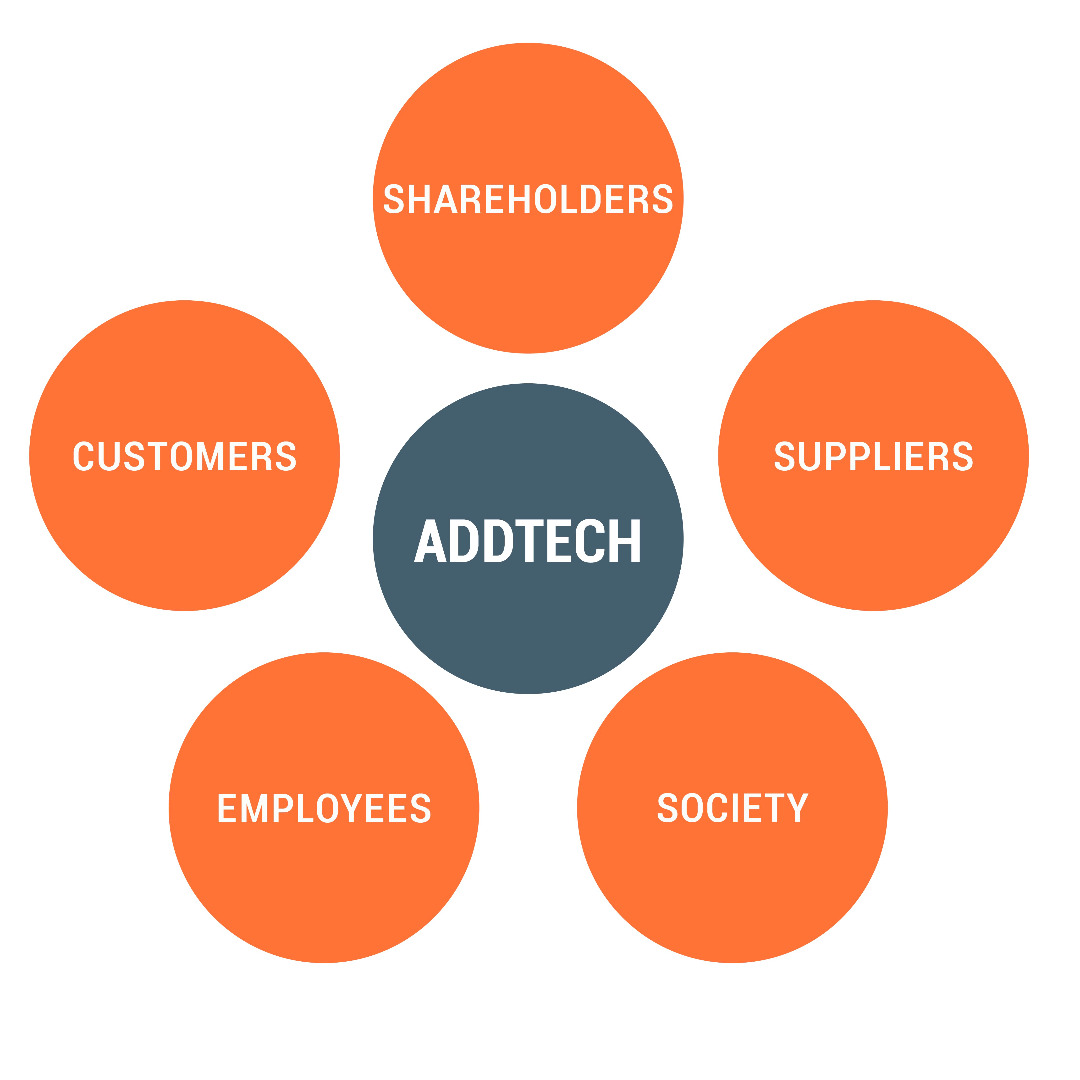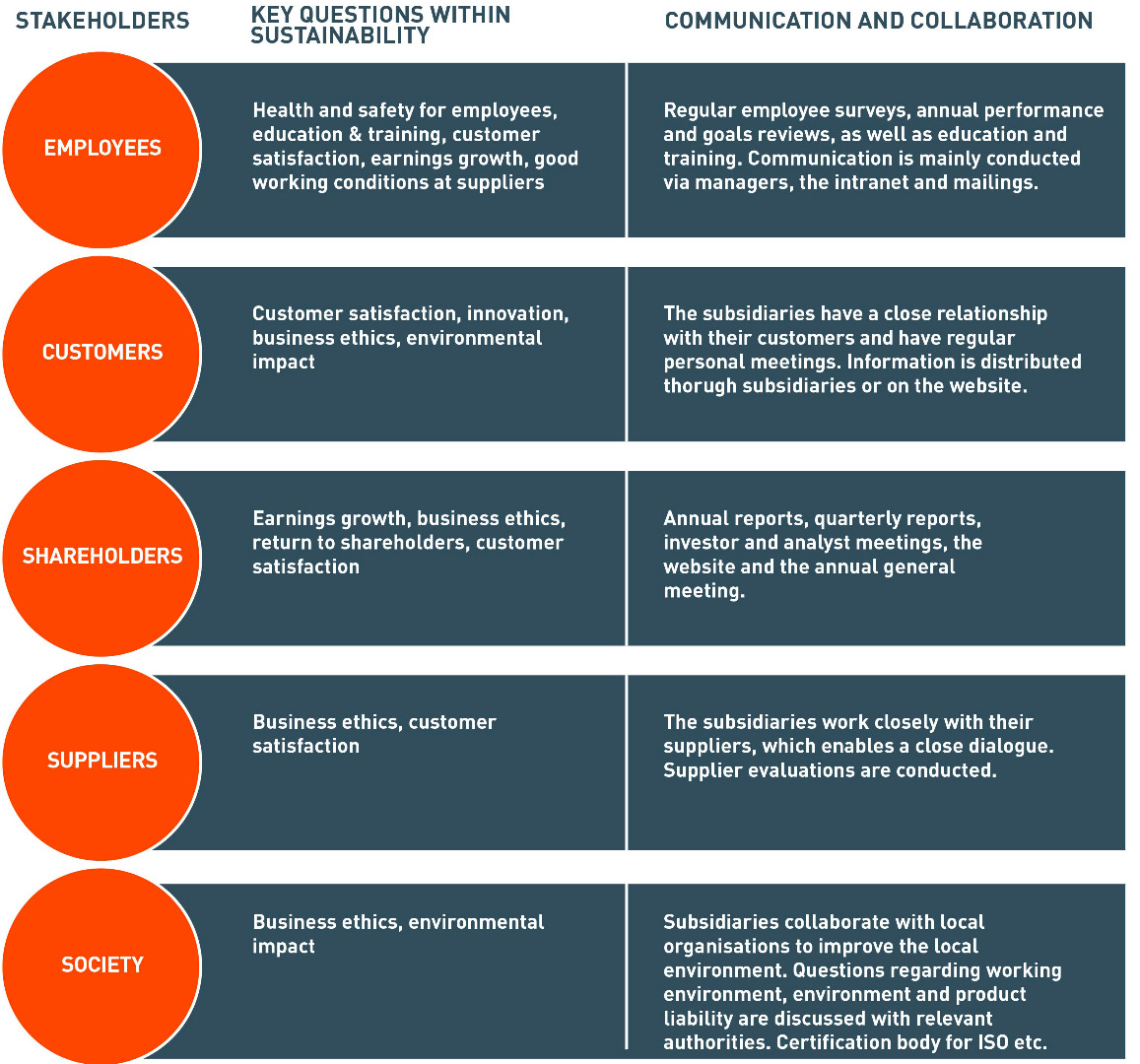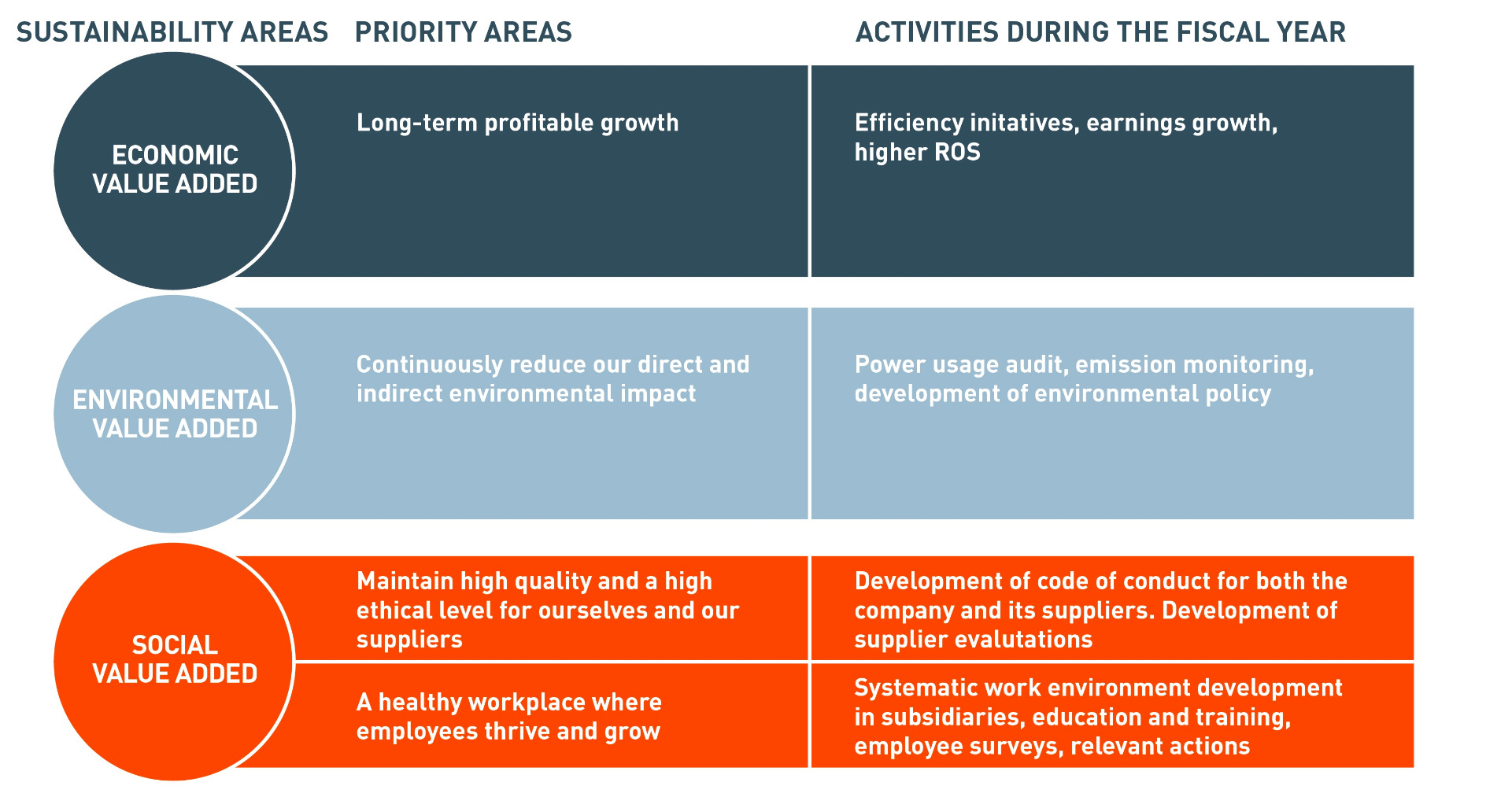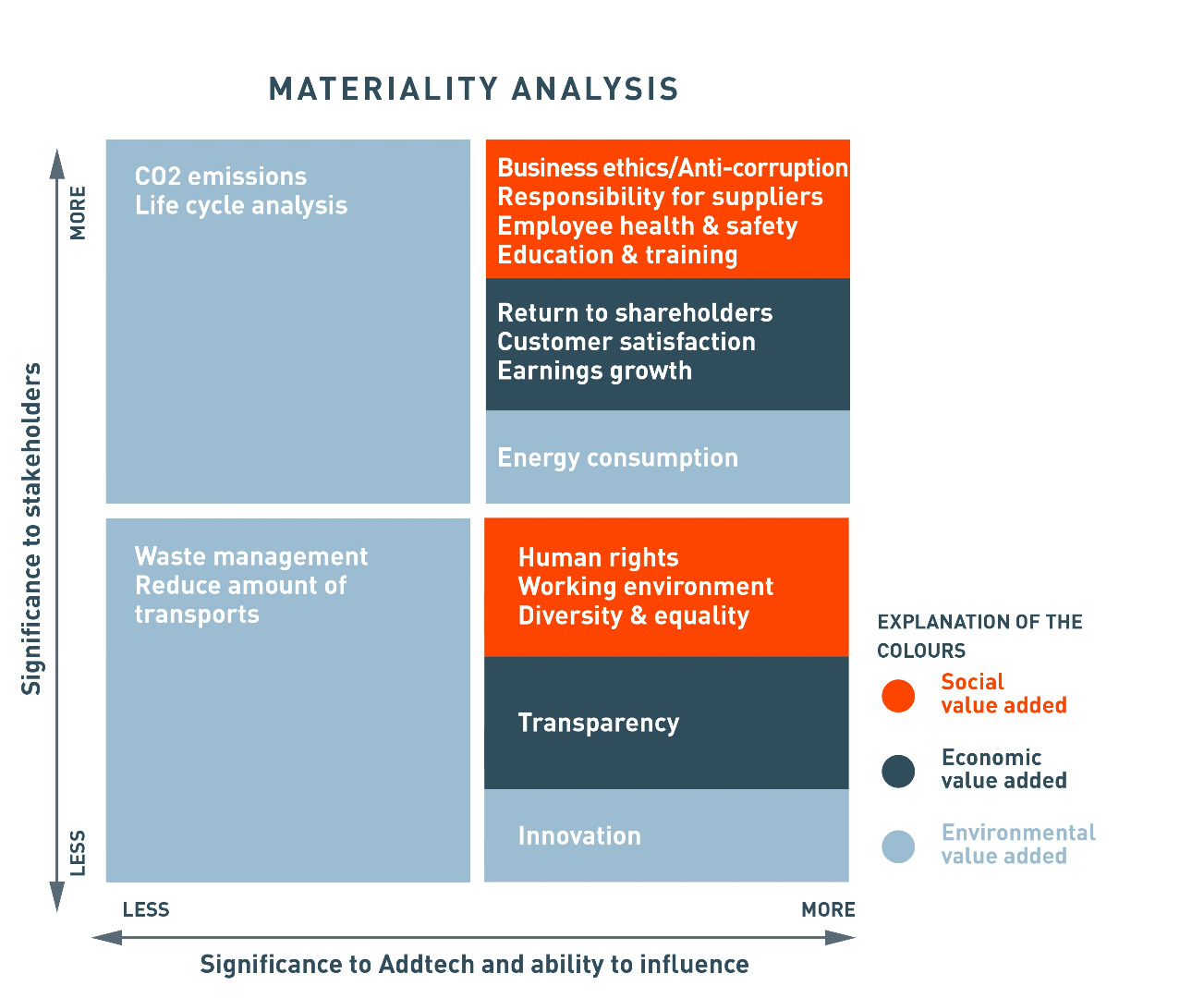ADDTECH WILL PRACTISE CORPORATE RESPONSIBILITY
As well as being subject to business economic requirements, goals and guidelines, our business activities shall also be conducted in accordance with strict criteria in terms of integrity and ethics. By systematically improving sustainability in our business, we are striving to become an increasingly professional partner to increasingly demanding customers. At Addtech, commerciality and sustainability are not mutually conflicting but mutually supportive.
ADDTECH IN THE VALUE CHAIN AND OUR BUSINESS MODEL
Addtech’s business concept is to offer high-technology products and solutions to companies in the manufacturing and infrastructure sectors. Addtech acts as a value-adding link between customers and suppliers. At one end of the chain, our customers seek a technical solution to meet their unique needs. As their business partner, we customise solutions in collaboration with our carefully selected suppliers. We create and add value for our customers to ensure that their products are more competitive in the end market. We have a large number of suppliers across the world and our purchases are made in large part from suppliers outside the Nordics, in Europe, the USA and Asia. Addtech conducts its own production on a minor scale, and so the major share of production takes place via orders to our suppliers.

PURPOSE AND OBJECTIVE OF THE REPORT
The purpose of this sustainability report is to describe in a transparent way Addtech’s objectives, strategies and governance, as well as its accountability, risks and opportunities from a sustainability perspective. Both Addtech and the world around us must be able to see how the Group’s sustainability initiatives are progressing. The report is intended to provide customers, employees and shareholders with an understanding and knowledge of our sustainability work.
FRAMEWORK AND METHODOLODY OF THE REPORT
The sustainability report 2016/2017 has been has been prepared in accordance with the GRI Standards: Core option. The report refers to the financial year 1 April 2016 - 31 March 2017. A GRI Index is shown on page 17.
In conjunction with the end of the financial year, all Addtech companies report sustainability data as part of their non-financial reporting. The participation of all companies is essential for progress in sustainability to be monitored at both company and Group level. Unless otherwise indicated, the report encompasses the operations of all companies and the Group as a whole. Comparative figures in parenthesis refer to the previous fiscal year, 1 April 2015 - 31 March 31 2016. Base year for intensity measures is 2014/2015.
All charts show aggregated group data. In cases where we have the opportunity and see a value in it, we break down and report sustainability data by gender, age and/or position in the organisation.
DIALOGUE WITH STAKEHOLDERS CREATES THE RIGHT FOCUS FOR SUSTAINABILITY WORK
 Our sustainability work is affected by the fact that a number of stakeholders make demands and have expectations of us. Dealing with existing demands and planning ahead for anticipated demands is a fundamental part of our strategy for sustainable development. Our stakeholders are groups in our vicinity who affect or are affected by our operations. We strive to maintain an open dialogue with our stakeholders so we can focus our efforts on the sustainability issues that our stakeholders see as most important. We have identified five important stakeholder groups: customers, suppliers, employees, shareholders and society.
Our sustainability work is affected by the fact that a number of stakeholders make demands and have expectations of us. Dealing with existing demands and planning ahead for anticipated demands is a fundamental part of our strategy for sustainable development. Our stakeholders are groups in our vicinity who affect or are affected by our operations. We strive to maintain an open dialogue with our stakeholders so we can focus our efforts on the sustainability issues that our stakeholders see as most important. We have identified five important stakeholder groups: customers, suppliers, employees, shareholders and society.
In 2016/2017, we conducted a new stakeholder dialogue to ensure that we are working and reporting on the areas that are most important to our business and our stakeholders. Via surveys and interviews, we put a number of questions to a selection of our stakeholders about their expectations of our sustainability work. The stakeholders questioned were major customers and owners, analysts and a selection of employees and Board members. The stakeholder dialogue revealed that our strengthened commitment within sustainability is valued but also that demands are increasing for continued engagement in the area.
The stakeholder dialogue indicates the areas of sustainability that our stakeholders feel that we should prioritise. On the basis of these views, Group management consults with the Board of Directors to determine which issues are important to us, and together they establish common procedures and objectives. The fact that both the Board of Directors and Group management agree to the sustainability objectives makes the issue a natural part of our strategy.

Addtech’s work on the major sustainability issues is communicated to stakeholders mainly via the sustainability report. Ongoing dialogue with stakeholders is also conducted partly at Group level and partly, to a major extent, at the Group’s companies. The decentralised organisation, with autonomous companies operating close to their customers and suppliers, creates a natural and continuous dialogue on sustainability.
SIGNIFICANT ISSUES AND RISKS
The findings from the stakeholder analysis revealed the most highly prioritised areas in sustainability were to create and deliver profitable growth, to reduce our negative impact on the environment, to maintain a high standard of business ethics and to provide a healthy workplace. The table below shows the work we performed in these areas over the financial year. In the materiality analysis, we weighed up the stakeholders’ observations against the risks and opportunities that are specific to us.

